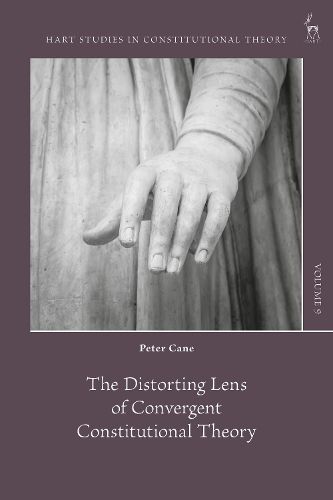Readings Newsletter
Become a Readings Member to make your shopping experience even easier.
Sign in or sign up for free!
You’re not far away from qualifying for FREE standard shipping within Australia
You’ve qualified for FREE standard shipping within Australia
The cart is loading…






This book challenges the near-universal acceptance of a US-style, Western constitutional paradigm as the best basis for comparative constitutional studies.
It does so on three main grounds: anachronism, 'othering' and cultural specificity. Main pillars of 'convergent constitutional theory' are rooted in the revolutionary, late-eighteenth century - a lost world; constitutional arrangements that deviate from the paradigm are often branded as 'outliers' or even as not constitutional at all; and the foundations of the paradigm in liberal democracy give no space for other forms of constitutionalism. Whatever the attractions of convergent theory as a normative ideal of good government, for the purposes of understanding, analysing and explaining constitutional systems it is far from ideal.
This book discusses and questions: convergent theory's weddedness to writing as the technology of constitution-making; its image of a constitution as fundamental law; its idea that a constitution expresses the 'sovereignty of the people'; its use of tripartite separation of powers as the basic principle of institutional design; its relative neglect of administrative law; its association of 'rights' with judicially enforceable bills of rights; and its obsession with a vaguely specified concept of 'democracy'.
It makes suggestions for alternative, preferable methods of understanding, analysing and explaining constitutions, and governmental and constitutional systems.
$9.00 standard shipping within Australia
FREE standard shipping within Australia for orders over $100.00
Express & International shipping calculated at checkout
Stock availability can be subject to change without notice. We recommend calling the shop or contacting our online team to check availability of low stock items. Please see our Shopping Online page for more details.
This book challenges the near-universal acceptance of a US-style, Western constitutional paradigm as the best basis for comparative constitutional studies.
It does so on three main grounds: anachronism, 'othering' and cultural specificity. Main pillars of 'convergent constitutional theory' are rooted in the revolutionary, late-eighteenth century - a lost world; constitutional arrangements that deviate from the paradigm are often branded as 'outliers' or even as not constitutional at all; and the foundations of the paradigm in liberal democracy give no space for other forms of constitutionalism. Whatever the attractions of convergent theory as a normative ideal of good government, for the purposes of understanding, analysing and explaining constitutional systems it is far from ideal.
This book discusses and questions: convergent theory's weddedness to writing as the technology of constitution-making; its image of a constitution as fundamental law; its idea that a constitution expresses the 'sovereignty of the people'; its use of tripartite separation of powers as the basic principle of institutional design; its relative neglect of administrative law; its association of 'rights' with judicially enforceable bills of rights; and its obsession with a vaguely specified concept of 'democracy'.
It makes suggestions for alternative, preferable methods of understanding, analysing and explaining constitutions, and governmental and constitutional systems.